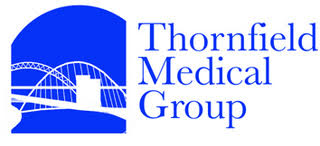Shared Care Agreements
From 1st October 2023, Thornfield Medical Group will no longer accept new Shared Care agreements.
This decision has been made jointly with our neighbouring practices in and Primary Care Networks.
We have been receiving a growing number of requests from an increasingly large number of providers.
These requests place an increasing amount of work on our Practice team, and at times, this additional workload is impacting our ability to deliver our core services to you, our patients.
Shared Care Agreements are not a ‘core’ part of our work in General Practice, and without adequate resources to deal with this increasing demand, we can’t continue to assure ourselves that patients are safely monitored to the highest standards of care.
What this may mean for patients
If there is already a Shared Care Agreement in place for your care, this will continue.
For patients with new treatment plans put in place by Specialists, responsibility for prescribing and monitoring your medication will remain solely with your Specialist. Rather than coming to the Practice for monitoring or reviews, you may be given an outpatient appointment at a hospital or other NHS location.
Examples of medication that may be affected:
| DMARD (commonly used for arthritis) | Immunosuppressants | ADHD medications | ‘High Risk’ medications |
|---|---|---|---|
| Methotrexate (oral / injection) | Tacrolimus (oral) | Methylphenidate | Amiodarone |
| Leflunomide | Sirolimus | Dexamfetamine | Dronedarone |
| Penicillamine | Mycophenolate | Lisdexamfetamine | Riluzole |
| Sulfasalazine | Ciclosporin (oral) | Atomoxetine | Lithium |
| Hydroxychloroquine | Guanfacine | Valproate (in people of child-bearing potential 12-55y | |
| Azathioprine | Midodrine | ||
| Mercaptopurine (6-MP) | Tolcapone | ||
